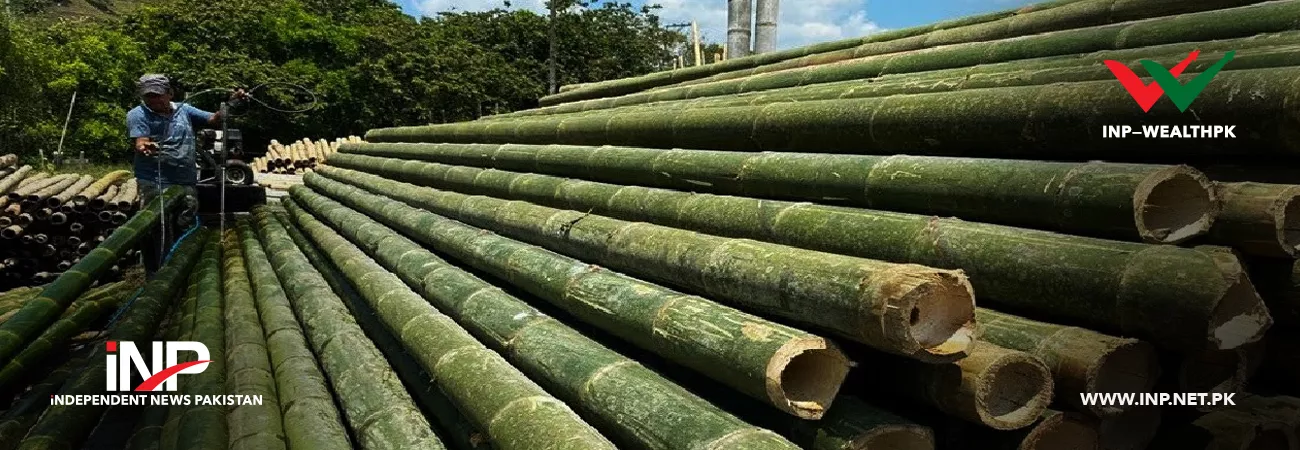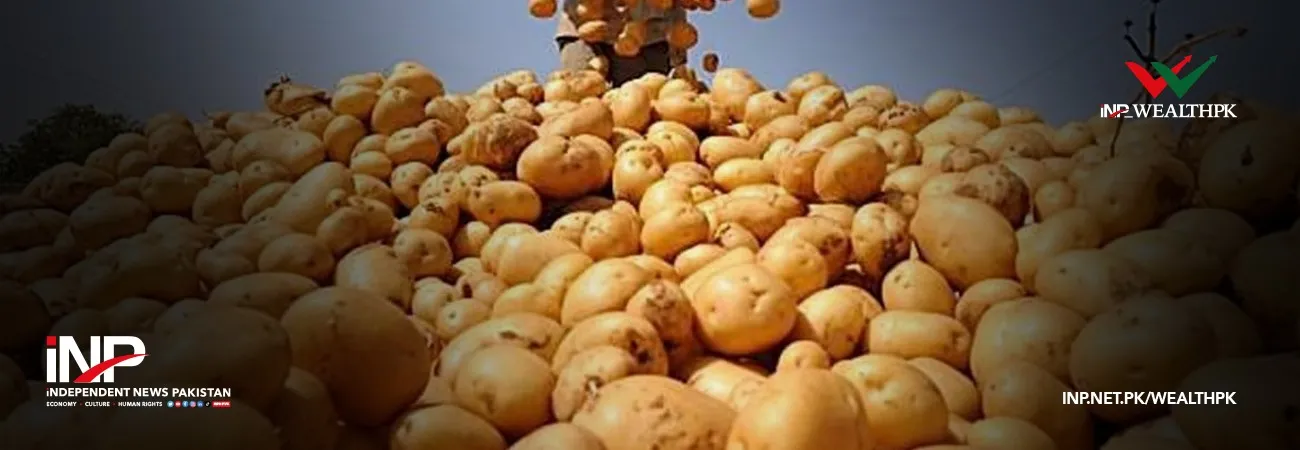INP-WealthPk
Arooj Zulfiqar
Following in the footprints of its trusted neighbour China, Pakistan can combat climate change by cultivating bamboo on a large scale, WealthPK reports.
According to an expert, a versatile forest product, bamboo cultivation is encouraged by China as a unique solution to combat climate change. The bamboo sector has proven to be quite lucrative and Pakistan is one of the countries with the best conditions for large-scale bamboo cultivation.
A senior scientific officer of the Ministry of Climate Change told WealthPK that bamboo was considered a significant plant in Asia in terms of ecology, society and commerce. He said that bamboo could be found in tropical, subtropical and temperate regions all over the world.
“Bamboo-based development is also an efficient way to improve the livelihoods of rural people. The residents of rural areas have adequate access to these crops, which can be grown or harvested in forest margins or agroforestry situations with only a small initial capital investment to generate farm income,” said the official.
He said that China was promoting bamboo cultivation to combat climate change since it was a powerful carbon sink. He said that Pakistan needed to adopt and implement Chinese tactics to combat climate change.
“China has made great progress in the production of bamboo and has effectively worked on its forestry. China is currently in competition with the west,” said the official.
He said that China advanced in the development and scientific cultivation of bamboo. China currently leads the globe in bamboo research because of its extensive network of research facilities and potent technical force.
“Chinese expertise can be helpful for Pakistan to promote bamboo cultivation for forestation and combating climate change. In Pakistan, the idea has already been adopted,” he said.
The official said that Pakistan had roughly 15 different types of bamboo species that were grown in various regions. Bamboo housing has also been used throughout the country to construct post-disaster houses after earthquakes and floods.
“There are countless things that can be manufactured from bamboo in addition to using it as raw material. Bamboo is used to make furniture and tops, culinary utensils, sporting goods, toothbrushes and decorative items in the sizable market of Chiniot,” he said.
The official said that bamboo farming was considered commercially viable in Pakistan. It can be exported to Iran, Afghanistan, Iraq, the United Arab Emirates (UAE), Indonesia and Central Asia. Bamboo also can grow on a wider scale. In Pakistan, places like Sargodha, Chiniot, Mandi Bahauddin, Kasur and Dera Ghazi Khan are known for the bamboo trade. These areas are still only partially utilised for bamboo farming owing to a lack of technology and sufficient guidance.
“This industry has the potential to become a substantial source of economic growth in parts of Pakistan if the government pays due attention to it. Bamboo production and business can play a significant role in poverty alleviation,” he told WealthPK.
Credit: Independent News Pakistan-WealthPk













